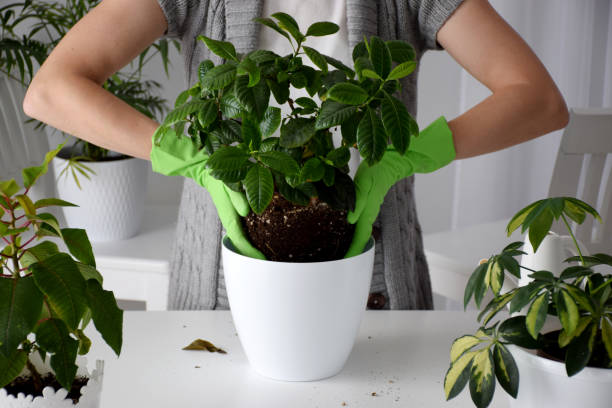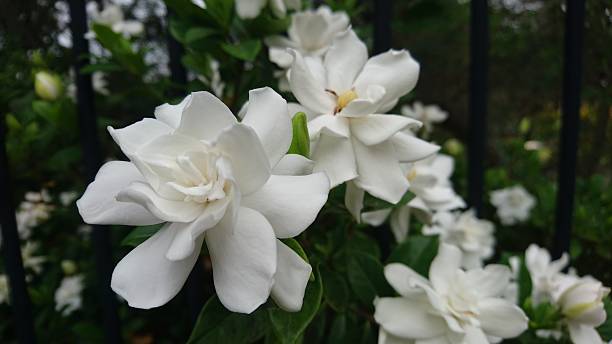Gardenia Companion Plant Guide: How to Select the Best Plants for Your Space!
Companion plants are plants that can live together in harmony and benefit each other. They can be used to help improve the health of your gardenia, reduce pests, and attract beneficial insects. To determine the ideal plants to grow alongside your gardenia, start by researching the plant’s characteristics and how they will benefit your gardenia tree. Once you have a list of potential candidates, it is time to test them out in your garden to see which ones work best together.

Table of Contents
Factors to Consider in Choosing a Companion Plant for Your Gardenia Plant
When choosing companion plants for your gardenia, it is essential to think about the following things:
- Plant type: Some companion plants are better suited for growing in a dry environment, while others prefer moist soil. Make sure to choose plants that will not compete with or harm your gardenia.
- Plant size: In the outdoors, choose plants that provide shade and support for the gardenia plant, helping to keep it cool during hot weather and reducing the need for water. Make sure to choose a small plant to fit within the confines of your gardenia pot without crowding it but large enough to provide sufficient coverage. Gardenias prefer smaller plants as companions because they provide shade and reduce resource competition.
- Plant compatibility: Choose plants native to your area and will be compatible with the climate and soil conditions. Gardenias require specific climate and development tendencies, so choose plants accordingly.
- Plant needs: Consider whether the plant needs water, sunlight, or both. Also, determine whether the plant needs fertile soil or not.
- Seasonality: Certain companion plants may be more active during certain times (for example, flowers during the springtime). As soon as you have chosen a few plants that are good companions for your gardenia, start planting them in early fall (around September). Keep watering them until they are fully grown in late winter or early spring.
- Water needs: The plant should have similar water needs as your gardenia.
- Similar sun requirement: Choose plants that thrive in an area that receives partial or full sunlight throughout the day.
- Plant’s soil type and pH level: Gardenias prefer acidic soils with a pH level of 6.0 or lower, so choose a companion plant that matches this requirement.
- The plant’s flower color, fragrance, and shape: Some companion plants have flowers that match the color of gardenias’ flowers, while others have complimentary flowers (i.e., different colors). Choose one that will complement your gardenia’s flower color and style. Choose plants with fragrant flowers or foliage to add more fragrance to your garden.
Tips on Planting Gardenia With Companion Plants
Once you have determined which plants are compatible with your gardenia, it is essential to plant them properly to grow and thrive together. Here are some tips for planting a gardenia shrub with companion plants:
- Select a location with full sunlight and plenty of water.
- Plant the companion plants at least 2 feet away from the trunk of the gardenia tree to avoid resource competition or leaf shading.
- Ensure the soil around the plants is well-drained so that excess water does not accumulate on the roots of the other plants and cause them to rot.

The 10 Best Companion Plants for Gardenias
Companion plants are plants that can live together in harmony and benefit each other. Selecting the right companion plants for your gardenia is vital because they will help improve the health of your gardenia, reduce pests and diseases, and increase yield.
Some of the best companion plants for gardenias include:
- Aloe vera is a succulent plant that helps to protect gardenias from fungal diseases and insect damage. It also provides Gardenias with the water and nutrients they need.
- Catnip: A mint family with a strong scent that deters pests such as aphids, mites, scales, whiteflies, mealybugs, red spider mites, and leafhoppers. It also helps to promote flowering in Gardenias.
- Lavender: It’s an aromatic herb that helps repel insects and parasites while providing Gardenias with essential oils that can deter harmful bacteria and fungus.
- Lemon balm: It’s a shrubby perennial herb that helps repel bugs, keeps Gardenias clean, increases their yields, and strengthens their stems.
- Bay laurel: (Laurus nobilis): This tree is native to warm climates and good for areas with mild winters. It provides shelter and protection from wind and rain and attracts beneficial insects to your garden.
- Camellia Sinensis: This tree is famous in colder climates because it tolerates a wide range of conditions. It produces fragrant flowers that attract pollinators like bees and butterflies, which help improve yields in your garden.
- Citrus trees: These trees are great companions for gardens because they provide shade during hot summer days, add color and fragrance to your yard, and can be trained to grow in a particular direction or shape.
- Roses: They add beauty, fragrance, and color to a garden. Their flowers also provide nectar and pollen that help promote plant growth.
- Lilies are another excellent choice for a gardenia companion plant because they are popular among insect and bird enthusiasts. They also enjoy plenty of sunlight and grow quickly, making them an ideal choice for areas where space is limited. Peace lilies are known for their calming effects and help to keep the garden area clean.
- Orchids: They are beautiful additions to any garden, and they provide shelter for other plants and help reduce moisture loss in the soil. Orchids are lovely flowers that require little attention once established in the ground. Gardenias love orchid blooms, which provide them with nectar and pollen. This helps promote flower production and makes your gardenia look even more impressive.
- Geraniums add freshness and vibrancy to a gardenia landscape while providing an abundance of antioxidants that can protect against damage from environmental stressors. It also provides blooms during the winter months and is hardy in most climates.
- Rosemary: It’s an excellent plant for repelling insects and promoting growth. It also enhances the flavor of gardenias.
- Basil: As well as repelling pests, basil is an excellent plant for boosting the growth of your garden. Gardenias can also benefit from this.
- Mint: It’s an excellent plant for repelling pests, boosting morale, and improving air quality.
- Marigolds: These flowers add a touch of color to the garden and help suppress weeds.
- Succulents: These plants store water in their leaves, which helps them survive during dry periods. They also provide insulation for the roots of other plants, making them an excellent choice for areas that get cold in winter.
- Creeping Charlie: This plant is perfect for growing near the ground, as it helps to keep the soil moist and improves air circulation.
- Ficus trees: They are low-maintenance plants that provide shelter and support for other plants in the garden. They also have thick bark that helps protect them from insects and diseases.
- Spider plants: These plants help keep spiders away from the garden and provide a shady area for the gardenia.
- Sage: It’s an excellent plant for gardens because it reduces stress levels in the environment and inhibits weed growth.
Benefits of Planting Companion Plants
Companion plants are planted near each other to form a mutualistic relationship. This means that the companion plants help each other grow and thrive. There are many benefits in planting companion plants with your gardenia, including:
- They will help to reduce pests and diseases.
- Create a well-rounded ecosystem.
- They will provide shade and protection from the sun.
- They will add color and life to your garden.
- They will improve the soil quality.
